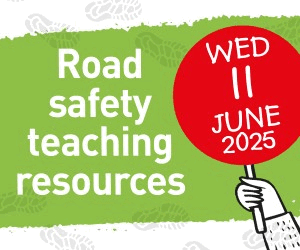Primary Times - the definitive what’s on and where to go family guide of activities and events for children of primary school age. Things to do with your kids during the school holidays including arts and craft activities, music and theatre for children, parties, competitions, days out, and family attractions along with term time drama schools, dance classes, after school clubs and sports activities. Things to do at a place near you!
How to Cope with School – Top Tips from Miriam Stoppard

Starting school and moving from one school to another is a huge step for a child, no matter what age.Miriam Stoppard, Family Doctor, Health Writer& Shampooheads Ambassador, has supplied us with some specially written helpful tips, written in a Question and Answer format, for new starters at school.
Miriams’ Four Key Pointers:
Q&A 1
Question: My four-and-a-half-year-old little boy is going to start reception at school and the teacher there says he has to be able to dress and undress himself and take off and put on his shoes before he can start school. I think this is fair enough. Are there other things you think children should be doing by a certain age?
Answer: I think your son’s teacher is right, and to make things easier for your son ensure all his clothes and shoes have velcro fastening and zips.
Here are some rough ideas of the ages for other milestones:
5 is when your child may be able to move into a proper bed
6 is when your child is probably ready to receive pocket money
7 is when your child can probably learn to cross the street alone
8 is when they can stay over at a friend’s house
9 is when they’re ready to learn about puberty
10 is when they’ll enjoy looking after their own pet
11 is when they can be left alone for short periods
Q&A 2
Question: My little girl is starting school in the New Year, she’s a bit shy and I’m a bit scared. How can I help prepare her for this big leap forward?
Answer: It will help your daughter to cope with her first few weeks at school if she can
- say both of her names and her address handle a knife and fork to cut up her food
- ask for the toilet without using special “family” names for it deal with buttons and zips
- use taps, towels and flush toilets.
It’s natural enough for parents to feel anxious as the day approaches for their child to take her first big step into the outside world, especially if she’s the first or only child. Parents who have been cementing a close relationship with a child for four or five years sometimes see school as taking their baby away and destroying something of that precious relationship. But it’s not. It’s growing up – for both of you.
Q&A 3
Question: Whenever my daughter goes back to school she seems to go down with everything. What can I do to protect her from all the germs that are going about?
Answer: It’s estimated that a child will have six to eight coughs and colds infections a year. The best protection you can give your child is to make sure that their vaccinations are up to date so that they won’t succumb to chicken pox, mumps, measles, German measles and other childhood infectious diseases.
Viruses can be spread in droplets of moisture from coughs and sneezes but the main route of transfer is via the hands and between adults and children through kissing. So washing the hands and refraining from hugs when there are a lot of colds around is a good idea.
The viruses and bacteria that cause tummy upsets and diarrhoea are passed just as easily round the closed communities of schools and this is a matter of hygiene. You can expect your schoolchild 2-3 bouts a year. These bugs lurk around toilet seats, taps and door handles of the children’s lavatories so hand washing should become a ritual and one that’s always observed.
Q&A 4
Question: My seven year old girl keeps coming home with nits despite my treating her meticulously each time. What do you advise?
There seems to be an epidemic of nits in schools – two of my grandchildren have them. There’s no social stigma any more from having nits because they’re so common. But if there are nits at school I would suggest that each time you wash your child’s hair you use a fine toothcomb to get rid of any nits (the eggs) and the lice themselves.
It’s almost impossible to prevent your child from getting nits because all it takes is two children putting their heads together for as little as a fewseconds for the lice to move from one head to the other. If you get a warning from school that nits have been found be sure to examine your child’s hair daily and use the product that the school recommends to eradicate them. If you have more than one child it would be wise to examine the hair of your other children and treat accordingly.
Copyright Miriam Stoppard Lifetime Ltd 2014. All Rights Reserved.





